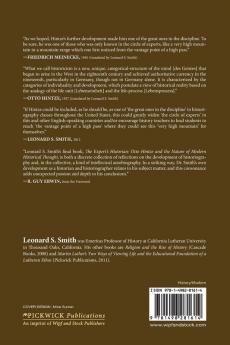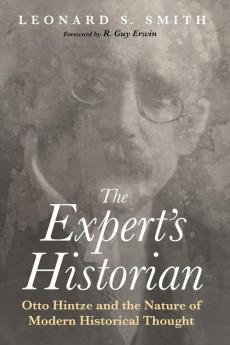English
Paperback
₹1653
₹1832
9.77% OFF
(All inclusive*)
Delivery Options
Please enter pincode to check delivery time.
*COD & Shipping Charges may apply on certain items.
Review final details at checkout.
Looking to place a bulk order? SUBMIT DETAILS
About The Book
Description
Author
As we hoped Hintzes further development made him one of the great ones in the discipline. To be sure he was one of those who was only known in the circle of experts like a very high mountain in a mountain range which one first noticed from the vantage point of a high pass. --Friedrich Meinecke 1941 (translated by Leonard S. Smith) What we call historicism is a new unique categorical-structure of the mind [des Geistes] that began to arise in the West in the eighteenth century and achieved authoritative currency in the nineteenth particularly in Germany though not in Germany alone. It is characterized by the categories of individuality and development which postulate a view of historical reality based on the analogy of the life unit [Lebenseinheit] and the life-process [Lebensprozess]. --Otto Hintze 1927 (translated by Leonard S. Smith) If Hintze could be included as he should be as one of the great ones in the discipline in historiography classes throughout the United States this could greatly widen the circle of experts in this and other English-speaking countries and/or encourage history teachers to lead students to reach the vantage point of a high pass where they could see this very high mountain for themselves. --Leonard S. Smith 2012 Leonard S. Smiths final book The Experts Historian: Otto Hintze and the Nature of Modern Historical Thought is both a discrete collection of reflections on the development of historiography and in the collective a kind of intellectual autobiography. In a striking way Dr. Smiths own development as a historian and historiographer relates to his subject matter and this consonance adds unexpected passion and depth to his conclusions. --R. Guy Erwin from the Foreword Leonard S. Smith was Emeritus Professor of History at California Lutheran University in Thousand Oaks California. His other books are Religion and the Rise of History (Cascade Books 2008) and Martin Luthers Two Ways of Viewing Life and the Educational Foundation of a Lutheran Ethos (Pickwick Publications 2011).
Delivery Options
Please enter pincode to check delivery time.
*COD & Shipping Charges may apply on certain items.
Review final details at checkout.
Details
ISBN 13
9781498281614
Publication Date
-23-03-2017
Pages
-134
Weight
-192 grams
Dimensions
-152x229x7.28 mm











